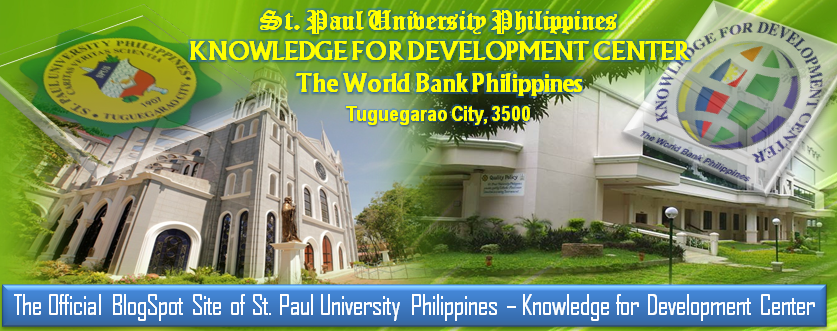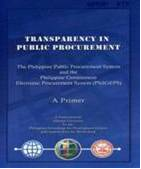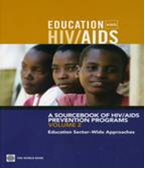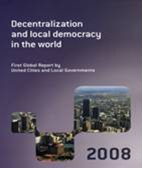EVENT 1: “Project Sweep Training for Trainers”
DATE: April 20, 2009, Monday [8:00AM-12:00NN]
PARTICIPANTS: BARANGAY OFFICIALS
VENUE: ST. PAUL UNIVERSITY PHILIPPINES KNOWLEDGE FOR DEVELOPMENT CENTER, Mabini St. Ugac Norte, Tuguegarao City
EVENT 2: “KDC 101 Videoconference”
DATE: April 20, 2009, Monday [1:00PM-3:00PM]
PARTICIPANTS: BARANGAY OFFICIALS
VENUE: ST. PAUL UNIVERSITY PHILIPPINES KNOWLEDGE FOR DEVELOPMENT CENTER, Mabini St. Ugac Norte, Tuguegarao City
EVENT 3: “Mini-Panibagong Paraan Para sa Pag-unlad ng Cagayan Valley”
DATE: April 20-22, 2009, Monday-Wednesday
PARTICIPANTS: BARANGAYS OFFICIALS
VENUE: Learning Resource Center Lobby, St. Paul University Philippines, Mabini St. Ugac Norte, Tuguegarao City
EVENT 4: “Livelihood Skills Training for Trainers”
DATE: April 21, 2009, Tuesday [8:00AM-5:00PM]
PARTICIPANTS: BARANGAY OFFICIALS
VENUE: St. Paul University Philippines Knowledge for Development Center. Mabini St. Ugac Norte, Tuguegarao City
EVENT 5: “2009 PHILGEPS Discussion-Forum”
DATE: BARANGAY OFFICIALS
VENUE: St. Paul University Philippines Knowledge for Development Center, Mabini St. Ugac Norte, Tuguegarao City
EVENT 6: “2009 Inclusive Education Regional Orientation-Workshop”
DATE: April 28, 2009 – 8:00AM -6:00PM
PARTICIPANTS: TERTIARY EDUCATION INSTITUTION ADMINISTRATORS
VENUE: 3rd Floor, Learning Resource Center, St. Paul University Philippines, Mabini St., Ugac Norte, Tuguegarao City
NOTES:
The series of events above are guided by the theme “Economic Development, Good Governance and Evinromental Sustainability Towards Community Empowerment” aim to: (1) promote collaboration between LGUs in promoting good governance; (2) discuss issues and opportunities that will help LGUs in promoting good governance; (3) promote project SWEEP to households; (4) equip households with innovative skills in entrepreneurial activities; (5) establish active networking and partnership of SPUP Knowledge for Development Center and various agencies and stakeholders in uplifting the living conditions of communities; and (6) promote to communities the use of the resources of the Knowledge for Development Center in good governance, economic development and environmental sustainability undertakings.
One of the events is “Mini-Panibagong Paraan Competition Para sa Pag-unlad ng Cagayan Valley”. This competition invites ideas for projects in the form of concept papers that help improve citizens’ quality of life through effective local governance.
Proposed projects should build and utilize multi-stakeholder partnerships to: (1) improve transparency and accountability in governance, (2) broaden and improve quality of citizen participation in governance, (3) strengthen collaboration among stakeholders, and (4) improve responsiveness and efficiency of public services.
The Mini-Panibagong Paraan Competition Para sa Pag-unlad ng Cagayan Valley shall serve as an avenue for an exchange of ideas among LGUs as well as promotion and selling of products produced in their respective communities. The exhibit will happen at the SPUP Learning Resource Center Lobby on April 20-22, 2009 and the opening ceremony will be on April 20 at 8:00AM to 9:00AM.
The best project/concept paper shall be chosen by the SPUP KDC Team from the entries. Winners shall receive plaque of appreciation from the World Bank Panibagong Paraan Project Team and Panibagong Paraan souvenir items.
The activities are funded by the World Bank and St. Paul University Philippines exclusive of accommodation. No fees will be charged. For more information, please call us at (078) 844-1863 local 214 or 119 and 09189309181 or e-mail us at brillo_eva@yahoo.com.
***************
EVENT 7: “Booklatan sa KDC: Readership Enhancement and Advancement (READ) Program for Trainers”
REGISTRATION FEE: P500.00 only [The event is supported by World Bank & NBDB]
DATE: May 4-5, 2009
RESOURCE PERSON: Dr. Elena Cutiongco, former President, Reading Association of the Philippines
PARTICIPANTS:
Ø College Teachers
Ø College Students Taking Courses in Teacher Education
Ø NSTP Public Information Officers
Ø Community Extension Officers
VENUE: Mere Madeleine Hall, St. Paul University Philippines, Mabini St. Ugac Norte, Tuguegarao City
OBJECTIVES:
1. Train storytellers and trainors who will help develop love
2. Introduce World Bank reading materials for young people.
EVENT 8: “Booklatan sa KDC: Storytelling Sessions Training and Workshop”
DATE: May 6, 2009
REGISTRATION FEE: P500.00 only [The event is supported by World Bank & NBDB]
RESOURCE PERSON: Manolo Silayan, President, Alitaptap Storytellers of the Philippines
PARTICIPANTS:
Ø Teachers in High School and Grade school
Ø Librarians
Ø Daycare Volunteers
VENUE: Mere Madeleine Hall, St. Paul University Philippines, Mabini St. Ugac Norte, Tuguegarao City
OBJECTIVES:
1. Train storytellers and trainors who will help develop love for
2. Introduce World Bank reading materials for young people.
NOTES
Booklatan sa KDC aims to help ensure access and availability of books to all sectors in all provinces. The program is done in partnership with publishers, authors, government agencies, non-government organizations (NGOs) and local government units. The Booklatan sa Bayan program endeavors to reach out to the countryside communities to heighten book readership, book development, and promotion on the use of libraries and/or barangay reading centers
The Booklatan sa KDC is a World Bank KDC version of the Booklatan sa Bayan of the National Book Development Board where similar activities will be undertaken. The Booklatan sa Bayan, which simply translates to Open a Book, is the flagship program of NBDB geared towards readership awareness and promotion. The program includes series of trainings on readership and literacy. It aims to help ensure access and availability of books to all sectors in all provinces. The program is done in partnership with publishers, authors, government agencies, non-government organizations (NGOs) and local government units. The Booklatan sa Bayan program endeavors to reach out to the countryside communities to heighten book readership, book development, and promotion on the use of libraries and/or barangay reading centers. Usual activities of Booklatan sa Bayan project are now being carried out simultaneously by World Bank KDC Network in the Philippines in cooperation with the Staff of the National Book Development Board with support from the World Bank Philippines.
SPUP KDC PARTNER AGENCIES/ORGANIZATIONS FOR THE EVENTS
World Bank, National Book Development Board, United Nations Information Center Philippines, Breaking Barriers for Young Adults with Disabilities, Department of Social Welfare and Development Field Office II










.png)


.png)
.png)
.png)
.png)
.png)
.png)
.png)
.png)
.png)
.png)
.png)
.png)
.png)
.png)
.png)
.png)
.png)
.png)
.png)
.png)
.png)
.png)
.png)
.png)
.png)
.png)
.png)
.png)
.png)
.png)
.png)